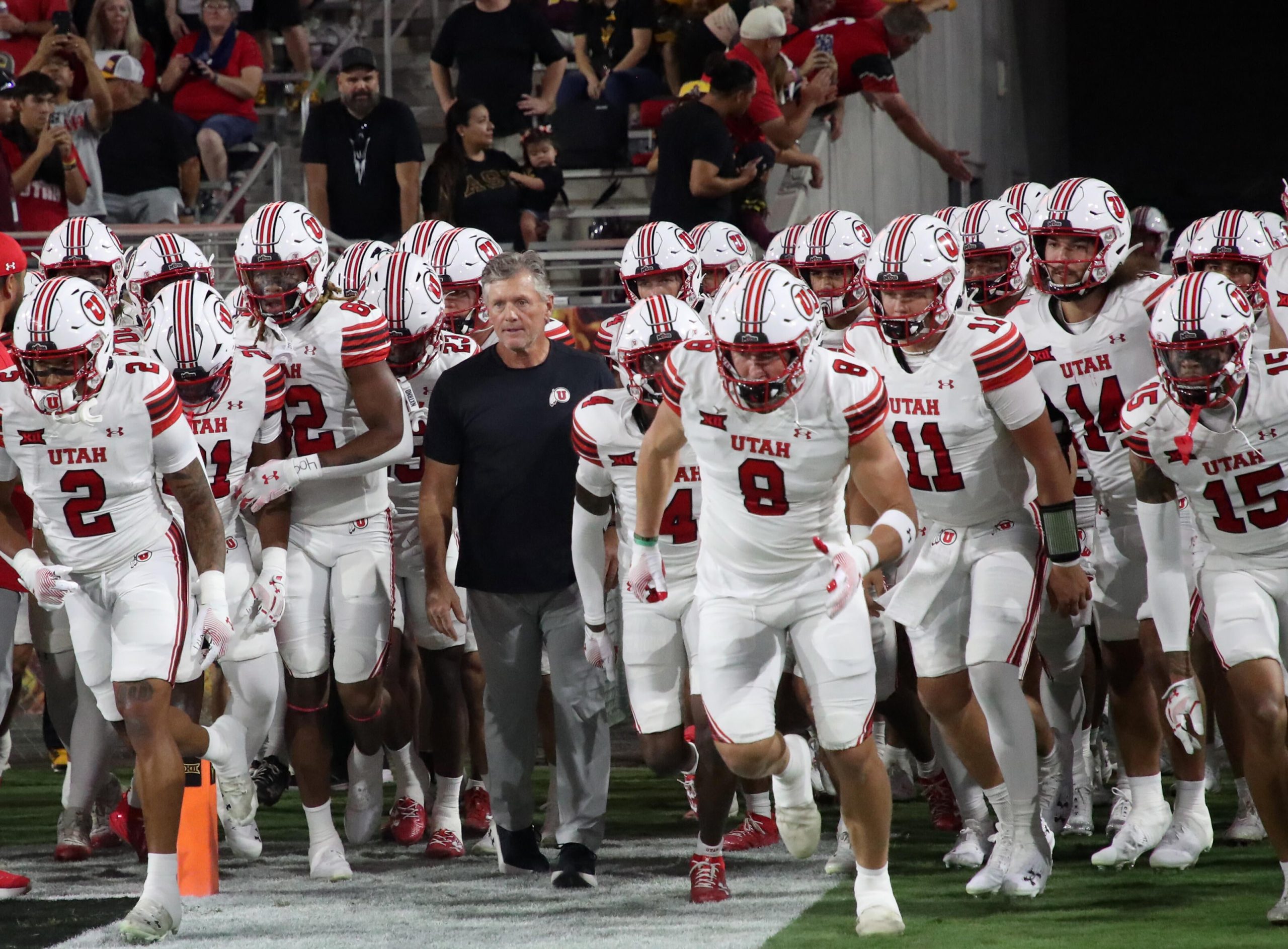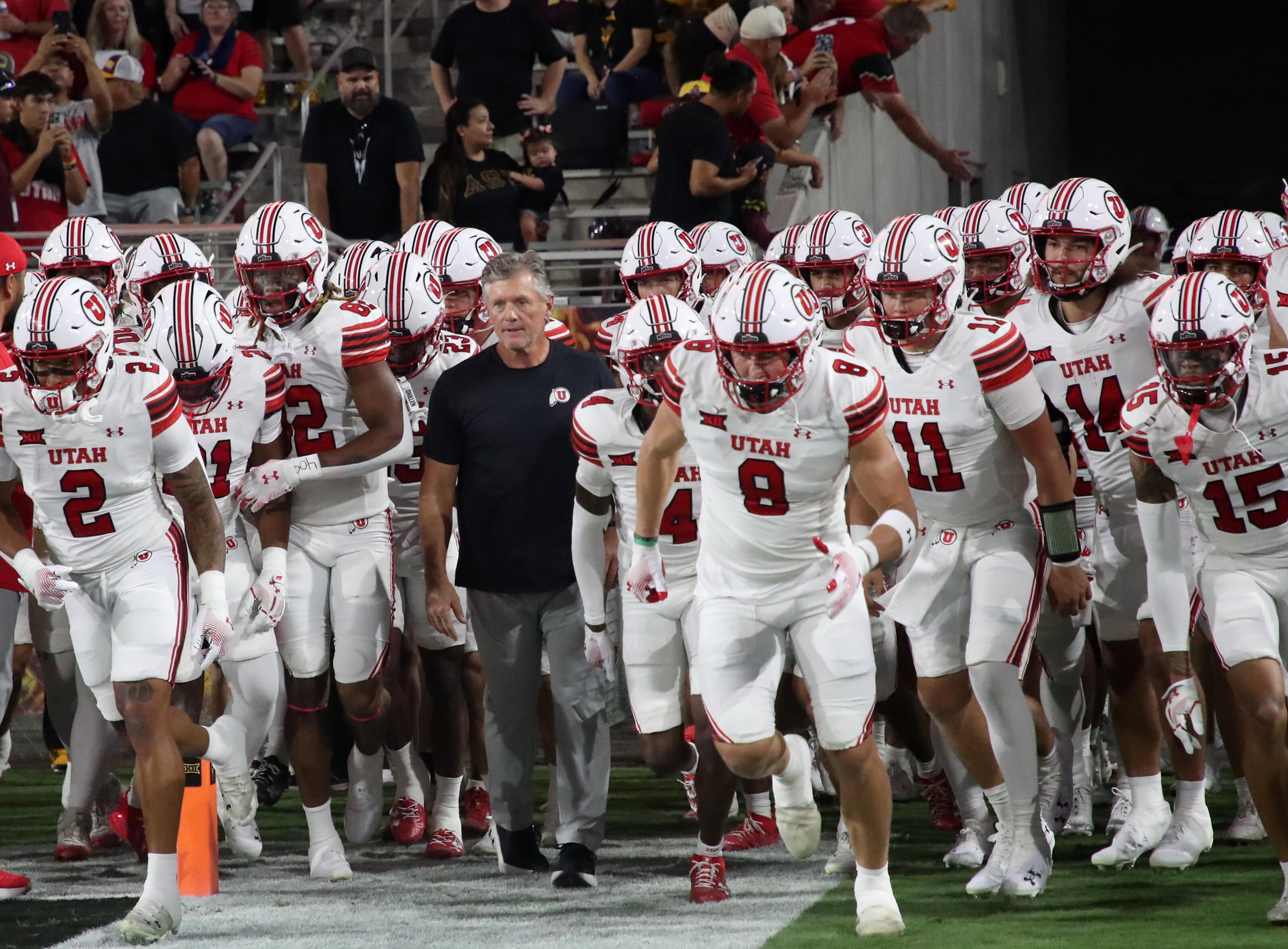Utah’s transition to the Big 12 Conference is a pivotal moment that could redefine the program’s trajectory. After years of stability in the Pac-12, the Utes are now stepping into a new competitive landscape, one that presents both opportunities and challenges. The preseason buzz surrounding Utah is palpable, with many analysts and fans alike viewing them as a favorite to win the Big 12 in their inaugural season. However, the reality of conference play is far more complex, and the Utes will need to navigate a variety of factors to achieve success.
The Preseason Buzz: Why Utah is a Favorite
Utah’s arrival in the Big 12 is met with high expectations, largely due to the program’s recent success under Coach Kyle Whittingham. Entering his 20th season, Whittingham has built a reputation for consistency, leading the Utes to 39 wins over the last four full seasons and securing two Pac-12 titles in the final three years of the conference’s existence. This track record of winning, combined with the return of key players, particularly seventh-year quarterback Cam Rising, has fueled optimism about Utah’s prospects in the Big 12.
Several factors contribute to the perception of Utah as a frontrunner in the conference:
Proven Coaching Staff: Whittingham’s longevity and ability to develop talent are invaluable assets. His experience in navigating conference play and adapting to different opponents gives Utah a significant advantage. The coaching staff’s ability to maintain a cohesive program will be crucial as the Utes transition to a new conference.
Returning Talent: The return of Cam Rising is a major boost for Utah. Rising’s leadership and experience are essential for a team adjusting to a new conference. His ability to manage the offense and make crucial plays will be a determining factor in Utah’s success. Additionally, the Utes return several key players on both sides of the ball, providing a strong foundation for the 2024 season.
Defensive Prowess: Utah has consistently fielded strong defenses under Whittingham, a tradition they will need to continue in the Big 12. A solid defense can provide a crucial edge in close games and against high-powered offenses. The Utes’ defensive unit will need to adapt to the different styles of play they will encounter in the Big 12, but their experience and talent give them a strong chance of success.
Conference Uncertainty: With the departure of traditional powerhouses like Texas and Oklahoma, the Big 12 is perceived as more open than in previous years. This creates an opportunity for a program like Utah to step in and immediately contend for the title. The conference’s reshaping has led to a sense of unpredictability, which could work in Utah’s favor as they look to establish themselves as a top-tier program.
The Reality Check: Challenges and Competition
While the optimism surrounding Utah is understandable, the path to a Big 12 championship is far from guaranteed. The conference is filled with ambitious programs, each vying for the top spot. Utah will face numerous challenges as they navigate their first season in the Big 12.
Conference Depth: The expanded Big 12 is a deep and competitive league. Teams like Kansas State, Arizona State, Iowa State, Texas Tech, and TCU all have the potential to contend for the title. Utah will need to prove they can compete with these programs on a consistent basis. The conference’s depth means that every game will be a challenge, and the Utes cannot afford to overlook any opponent.
New Opponents: Navigating a new conference means facing unfamiliar opponents with different playing styles and strengths. Utah will need to quickly adapt to the nuances of Big 12 football. The Utes’ ability to scout and prepare for new opponents will be crucial in determining their success. Additionally, the geographical spread of the Big 12 will increase travel demands, potentially impacting player fatigue and recovery.
Pressure to Perform: The high expectations surrounding Utah can create added pressure. The team must manage those expectations and focus on consistent performance throughout the season. The Utes will need to maintain their composure and avoid the pitfalls of complacency or overconfidence. Managing the pressure of being a favorite will be a key factor in their success.
Several teams pose a particular threat to Utah’s ambitions:
Kansas State: Consistently a strong program, the Wildcats are always a tough opponent. Their physical style of play and strong defense make them a formidable challenge for any team in the Big 12.
Arizona State: With quarterback Sam Leavitt returning after a stellar freshman season, the Sun Devils are viewed by some as a team to beat. Leavitt’s ability to lead the offense will be a major factor in Arizona State’s success, and Utah will need to be prepared for a tough matchup.
Texas Tech: This team has consistently been improving and has a lot of potential to be a threat. Their high-powered offense and experienced quarterback will pose a significant challenge for Utah’s defense.
Dark Horses: Teams like Iowa State and TCU could also surprise many. Both programs have shown the ability to compete at a high level and could emerge as contenders in the Big 12. Utah will need to be prepared for any team to pose a threat.
The “Coach Prime” Factor: Colorado’s Intrigue
No discussion about the Big 12 would be complete without mentioning Colorado and their charismatic coach, Deion Sanders. While the Buffaloes may not be the favorites, their presence injects a unique level of intrigue and media attention into the conference. Sanders’ ability to attract talent and generate excitement has made Colorado a program to watch. While some may see the Buffaloes as a long shot, their potential to disrupt the established order cannot be dismissed, especially with the significant betting interest they generate.
Beyond 2024: Building a Sustainable Future
While the immediate focus is on the 2024 season, Utah must also consider the long-term implications of their move to the Big 12. Building a sustainable program that can consistently compete for championships requires more than just short-term success. Key areas for focus include:
Recruiting: Utah must continue to attract top talent to compete with the best programs in the Big 12. Expanding their recruiting footprint and building relationships with high school coaches are crucial. The Utes will need to demonstrate their ability to develop players and provide them with opportunities to succeed at the highest level.
Facilities: Investing in state-of-the-art facilities is essential for attracting recruits and providing a competitive edge. Utah’s ability to upgrade their facilities will be a key factor in their long-term success. The Utes must ensure they have the resources and infrastructure to support a top-tier program.
Fan Engagement: Building a strong fan base is critical for generating revenue and creating a home-field advantage. Utah’s ability to engage with their fans and build a passionate support base will be crucial in their success. The Utes must create an environment that is exciting and welcoming for both players and fans.
Adaptability: The college football landscape is constantly evolving. Utah must remain adaptable to changes in conference alignment, recruiting strategies, and playing styles. The Utes’ ability to adapt to new challenges and opportunities will be a key factor in their long-term success.
A Defining Moment
Utah’s entry into the Big 12 represents a defining moment in the program’s history. The opportunity to compete on a national stage and contend for a conference championship is within reach. However, success will require more than just talent and coaching. It will demand resilience, adaptability, and a relentless pursuit of excellence.
Utah will need to manage expectations, navigate a challenging conference, and build a sustainable program for long-term success. If they can do that, the Utes have the potential to become a dominant force in the Big 12 for years to come.
The Verdict: Opportunity Knocks, But Work Remains
Utah’s move to the Big 12 is a calculated gamble with the potential for significant rewards. The program’s history of success, combined with the perceived openness of the conference, creates a unique opportunity for the Utes to establish themselves as a major player. However, the path to a Big 12 championship is fraught with challenges. The conference is deep and competitive, and Utah will face numerous unfamiliar opponents. Success will require more than just talent and coaching; it will demand resilience, adaptability, and a relentless pursuit of excellence. If Utah can rise to the occasion, they have the potential to make a lasting impact in the Big 12 and beyond.


